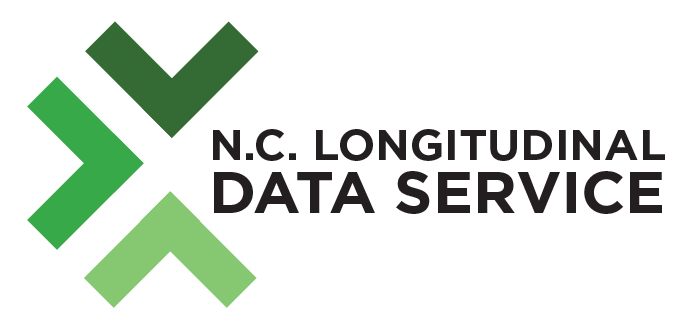How NCLDS Works and Other FAQs
How NCLDS Works and Other FAQs
To help North Carolinians understand more about how their data are protected, accessed, and used, and to help NCLDS users of all backgrounds understand more about how the service works, we have developed two approaches to sharing more information about NCLDS: The How NCLDS Works series and NCLDS Frequently Asked Questions (and Answers).
The How NCLDS Works Series
How NCLDS Works (HNW) is an evolving series of briefs intended to address questions about various aspects of the service that are not easily answerable in a paragraph or two. Each brief has been written in a way that we hope will make it accessible even to audiences without data, analysis, or technical backgrounds, but please share with us any feedback about how we can make the briefs more accessible, or any other topics you would like to see covered.
Currently Available HNW Briefs:
- Linking Data: eScholar Student ID
- Linking Data: eLink Entity Resolution
- Linking Data: Workforce Data
- Linking Data: Prospects for Ad Hoc Linking
- Making Data Requests
- Reviewing and Approving Data Requests
Planned Future Briefs:
- Cross-Sector NCLDS Governance
- Security and Privacy
- Fulfilling Data Requests
- Creating Practitioner Portals
- Cross-Sector Learning Goals
- Reviewing Externally-Produced NCLDS Products
- Using the Public Data Dictionary
NCLDS Frequently Asked Questions (and Answers)
Because NCLDS is a new service, this FAQ section currently is limited in scope but will expand as NCLDS grows and as we receive more questions about the service.
Overview of NCLDS
NCLDS works with data partners and other stakeholders to connect data from early childhood, K12 education, postsecondary, and employment to help evaluate the longer-term impacts and longer-term successes of various state programs—all while protecting the privacy and security of personal information. Most states have functioning SLDSs similar to NCLDS. In fact, North Carolina has several SLDSs, many of which collaborate with NCLDS.
Data and Data-Sharing
NCLDS does not collect data; instead, it uses data already collected by its partners. None of the data shared by these partners includes sensitive information such as name, address, religious or political affiliation, voting records, or private medical information.
The NCLDS Data Inventory (Data Dictionary) lists all data elements currently available via NCLDS.
NCLDS data-sharing policies and all other related policies and rules have been developed over several years in public meetings by teams of representatives from the agencies and organizations that provide data to NCLDS.
To request data that is not already available on this website in aggregate form, you must complete an NCLDS Request Form.
The length of the data request process varies depending on the number of requests in progress, the complexity of the request, and the number of data providers who need to review the request. You can find more information about the process for requesting custom datasets (including information about the estimated length of time required for each step in the request process) on the On-Request Datasets information page.
Data Matching
Many state agencies and other organizations already have developed approaches to linking data that includes use of universal IDs or common matching protocols. However, for the most part, these IDs and protocols are limited to data within a specific sector (like education or health). The NCLDS has developed methods for linking data across sectors that do not have common IDs and will continue to improve this service in the coming year. NCLDS will post a new How NCLDS Works brief soon (see list above), "Linking Data: Prospects for Ad Hoc Linking," to explain how linking is being handled during the current Full Open (Limited Implementation) phase.
Data Privacy/Security
Data are housed in a secured environment that has been validated by the North Carolina Department of Information Technology. There also are many check-points—both virtual and physical—that an NCLDS team member must navigate before gaining access to NCLDS’s servers and networking equipment. Direct access to data being prepared by NCLDS is restricted to only the NCLDS personnel responsible for the management of the system and the processing of data requests—not even the NCLDS Executive Director has direct access to the data.
NCLDS guidelines and policies prohibit personally-identifiable data from being made public, in compliance with all state and federal laws—and there are many such laws.
In fact, many Data Requesters will only see summary-level (not person-level) data, and protections even extend to those data (sometimes called "aggregated" data) even though summary data does not include any individual information to begin with - via a process called "small-cell suppression."
NCLDS also redacts (removes or blocks) individual data elements not otherwise protected by state or federal laws when it is the standing practice of a Data Contributor to do so.
Finally, requests for record-level data can only be made by vetted Data Requesters who have completed a formal Data Request and whose reasons for requesting the data have been reviewed and validated at four different points by all of the Contributors that manage the data being requested.
Other Questions
NCLDS is a statutorily-established program that receives funding each year from the State of North Carolina for NCLDS staffing and to support development of its data request and management tools. On occasion, NCLDS has an opportunity to partner with one or more of its Data Contributors to apply for additional grant funding to support special projects or growth of the Service.
